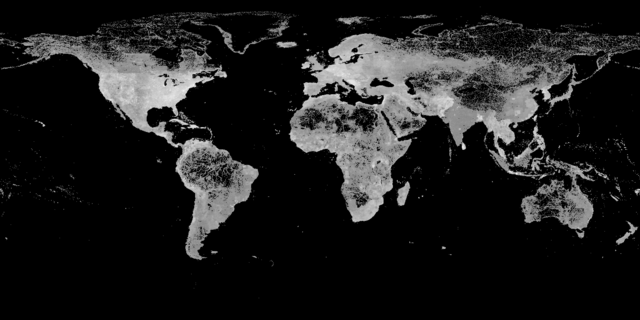Turning cities into time
My adventures in cities and dates and time
But first, back in time…
datetime.link
A work-in-progress date & time link:
- https://datetime.link/now/Singapore-SG
- https://datetime.link/2022-07-27T11:00Z/Singapore-SG
- https://datetime.link/2022-07-27T19:00+08:00/Singapore-SG,London-England-GB,Tiruchirappalli-Tamil_Nadu-IN,+03:00

Goal
- User visits https://datetime.link
- User searches for a city
- Each city is assigned a human-readable ID
- Look up time in that city
A few hours of coding, right?

Getting a list of cities
- Downloadable database instead of a city API
- Self-contained, no other costs except for hosting
- Must map to timezone information
- Sufficient city names, not just timezone names

I found GeoNames!
- Has timezones! In tz format too!
- Has alternate names!
- License: Creative Commons Attribution 4.0
(Do you know of any alternatives?)
GeoNames
- User-editable database of points of interest
- Provides a dump of information in tab-seperated files
- Each place is organised by a hierarchy
- country
- admin1 (administrative level 1)
- admin2/city
- admin3
- admin4
- admin5
- Provides alternative names and timezone
- Guide: http://download.geonames.org/export/dump/readme.txt

GeoNames city data snippet

tz database
- An ICANN-supported database of timezones
- Shipped with most Linux distributions
- Supported by the Go
timepackage - Format: Continent/City
- Asia/Singapore
- America/New_York
Assigning an identifier
- I wanted each city to be referenced directly in a URL while remaining human-readable
- https://datetime.link/now/Singapore,London
- But there are cities with the same name but different region or country
- Paradise, California, US
- Paradise, Nevada, US
- Join city, admin1 and country. Ignore admin1 when same as country name
Singapore-SG, Slough-England-GB, Albany-New_York-US
- In the future, add option to pick the more populous city

Relaxed searches
- I wanted to keep
alternatenamesfor cities, admin1 and country so I could later implement fuzzy search - Because
alternatenamessometimes have very similar or duplicates, I filtered some out - Example: SIN,Sin-ka-po,Singapore,Singapore City,Singapour,Singapur,Sin gapura,Sinkapoure,Sîn-kâ-po,Tumasik,cinkappur,prathes singkhpor,shingaporu,sigapura,sing-gapo l,sing-gapoleu,singapura,singkh por,sngapwr,snghafwrt,syngpwr,xin jia po,xing jia po,Σιγκαπού ρη,Сингапур,Сінгапур,סינגפור,ﺲﻨﻏﺎﻓﻭﺭﺓ,ﺲﻧگﺍپﻭﺭ,सिंगापुर,सिंगापूर,ਸਿੰਗਾਪੁਰ,சிங்கப்பூர்,ประเทศสิงคโปร์,สิงค์โปร,ປະເທດ ສງກະໂປ,ປະເທດສິງກະໂປ,စငကာပနငင,စင်ကာပူနိုင်ငံ,សងហបរ,សិង្ហបុរី,シンガポール,新加坡,星架坡,싱가포르,싱가폴
- Search is something I haven’t implemented, but would have been really easy if I instead threw all the data into a database. But no, I want to challenge myself. That’s the fun part of side projects!
Processing the GeoNames data
func readCities(f string, countries map[string]data.Country, admin1s map[string]data.Admin1) (map[string]*data.City, error) {
file, err := os.Open(f)
...
r := csv.NewReader(file)
r.Comma = '\t'
r.Comment = '#'
m := make(map[string]*data.City)
for {
...
name := record[1]
ref := normalizeName(record[2])
alternateNames, err := limitNames(name, splitNames(record[3]))
...
admin1Code := record[10]
countryRef := record[8]
population, err := strconv.ParseUint(record[14], 10, 64)
...
timezone := record[17]
...
country := countries[countryRef]
admin1 := admin1s[countryRef+"."+admin1Code]
eref := extendRef(ref, admin1.Ref, country.Ref)
...
c := &**data.City{
Ref: ref,
Name: name,
AlternateNames: alternateNames,
Timezone: timezone,
Population: population,
Admin1: admin1,
Country: country,
}**
...
}
}
func main() {
admin1s, err := readAdmin1Divisions("../third-party/admin1CodesASCII.txt")
...
countries, err := readCountries("../third-party/countryInfo.txt")
...
cities, err := readCities("../third-party/cities15000.txt", countries, admin1s)
...
b, err := json.Marshal(cities)
...
err = ioutil.WriteFile("../data/cities.json", b, 0644)
}Result
Now I have an ASCII-based key for every city, and their alternate names and timezone!
{
...
"Albany-Georgia-US": {
"n": "Albany",
"an": [
"City of Opportunity",
"albany jarjya",
"Олбани",
"ao er ba ni",
"olbeoni",
"orubani",
"albani"
],
"t": "America/New_York",
"p": 74843,
"a1": {
"n": "Georgia"
},
"c": {
"r": "US",
"n": "United States"
}
},
...
"Singapore-SG": {
"n": "Singapore",
"an": [
"Σιγκαπούρη",
"prathes singkhpor",
"Сингапур",
"Singapore City",
"sing-gapoleu",
"xing jia po",
"Sîn-kâ-po",
"Sinkapoure",
"singkh por",
"shingaporu",
"Sin-ka-po"
],
"t": "Asia/Singapore",
"p": 3547809,
"a1": {
"n": ""
},
"c": {
"r": "SG",
"n": "Singapore"
}
},
...
}
Resolving timezones
- How do I get from a tz database timezone (“Asia/Singapore”) into a time?
- Go support tz database timezones natively!
...
// Parse time portion
var t time.Time
timeString := "2022-07-27T00:00Z"
...
for _, f := range timeFormats {
t, err = **time.Parse(f, timeString)**
if err == nil {
break
}
}
...
loc, err := **time.LoadLocation("Asia/Singapore")**
...
timeInSingapore := t.In(loc) // So easy!
log.Printf("%s", timeInSingapore)How Go resolves timezones

- Can’t use system timezone database on Windows (https://github.com/golang/go/issues/38453)
- Solution:
import _ “time/tzdata”orgo build -tags timetzdata
- Solution:
- In JavaScript, most browsers ship with an embedded IANA timezone database. However, the specification does not require implementations to do so.
- In Dart, the standard library does not support timezones other than local and UTC, because there’s no guarantee that the system Dart code is running in has a timezone database. There are Dart packages that do so though.
datetime.link
A work-in-progress date & time link:
- https://datetime.link/now/Singapore-SG
- https://datetime.link/2022-07-27T11:00Z/Singapore-SG
- https://datetime.link/2022-07-27T19:00+08:00/Singapore-SG,London-England-GB,Tiruchirappalli-Tamil_Nadu-IN,+03:00
Why Go:
- I didn’t need to use many dependencies to achieve my goal
- The stdlib has so much goodies
- Fast and simple
Future improvements:
- City or zone search
- Time picker screen
- User can add more clocks when viewing a link
(I’m really slowly building it)
Thank you!
- GeekcampSG 2022 is happening late October! Follow our socials for updates
- I'm hiring a Principal Software Engineer for Happily Ever After (https://hea.care)